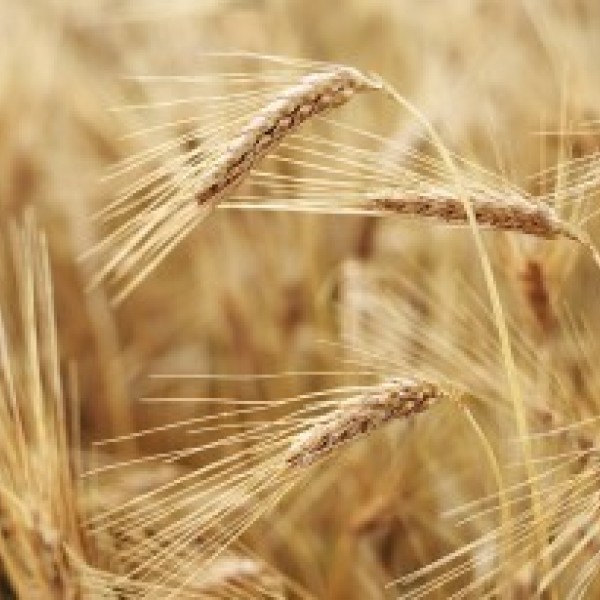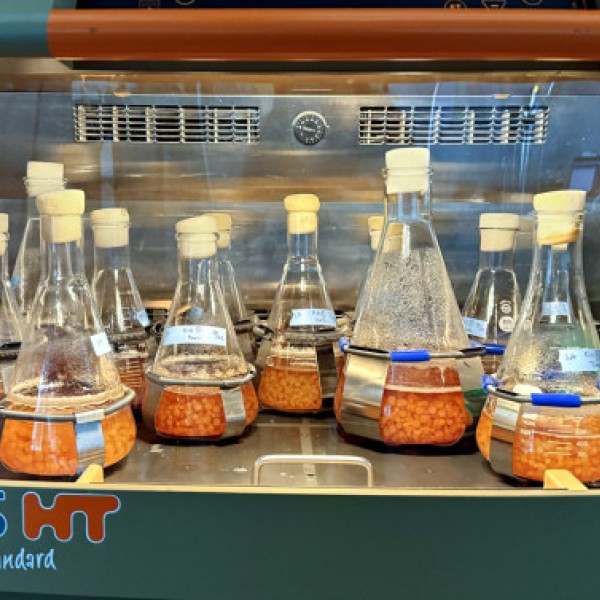Olivia Godber is a postdoctoral research associate, leading the Dairy Sustainability Key Indicators Project in Cornell CALS Nutrient Management Spear Program (NMSP). Tasked with the mission to examine dairy farms’ environmental footprints, Godber aims to help improve dairy farm efficiency, profitability and environmental sustainability. Her focus on the interaction of nutrient management practices with other drivers of dairy sustainability allows her to identify areas of opportunity for farmers across New York State and beyond.
Godber grew up in Derbyshire, England with agriculture abound. Early exposure to farming cemented a curiosity to learn about livestock and food systems.
In 2011, Godber graduated with a Bachelor’s degree in Animal Science with a focus on livestock species from the University of Nottingham. She went on to pursue a Masters in Meat Science and Technology at the University of Bristol where she researched food system supply chains. Her research looked backwards at the supply chain, from the customer to the retailer and to the farm, exploring how farmers and technology can realistically and sustainably produce products to meet evolving demand.
“My research unearthed a bit of a catch twenty-two,” said Godber. “For example, in the U.K., there’s a big push for grass-fed beef, so we examined customer behavior at the supermarket. The grass diet adds a tint in color to the fat in the meat and because of this, customers overwhelmingly bought indoor-raised, grainfed beef with white fat instead. It’s not just about supply and demand with our food, it’s a matter of educating the consumer.”
Godber continued her studies at the University of Bristol with a Ph.D. looking at livestock systems. She used a holistic approach to model whole farm systems including milk and/or meat production, financial sustainability, animal health and welfare, the environment and how all of the components are linked together. Data recording was and continues to be critical to her work.
“Working with farms in a natural, biologically complex system is challenging,” said Godber. “You have to look at the whole system to see how different factors have an impact… and then you throw in the variability of weather and its impacts.”

Throughout her studies, Godber gained an international perspective. An internship with the Food and Agriculture Organization of the United Nations in Rome, demonstrated the value of effective science communications for applied research. “Research needs to be relevant to the people and farmers you’re working with,” said Godber. Taking it to heart, she researched and advised farmers across Italy, Greece and Morocco. Approaching her work from a place of curiosity and empathy, Godber researched agricultural systems by building relationships with the farmers and their families.
“Multi-generational farms know more about how their farm functions than data sets can ever tell us by themselves. Even so, the farmers were really eager to learn how to make improvements.”
In 2019, Godber worked as a sustainable agriculture consultant for ADAS – the U.K.’s largest independent provider of agricultural and environmental consultancy, policy advice and research and development – where she gained an industry perspective to supply chains and sustainable consumer demand. The industry was under immense pressures from the U.K. government and consumers to prioritize net zero emissions and greenhouse gas reduction targets. Working as a liaison between industry and agricultural producers, Godber advised farmers on strategies to meet the new targets. Immense progress was made when farmers recognized they could increase environmental sustainability and financial stability in tandem.



Today, Godber is a key member of the NMSP team where she integrates research with extension for the Dairy Sustainability Key Indicators Project. Funded by grants from Chobani and the Northern New York Agricultural Development Program (NNYADP), this project partners with farmers and farm advisers to conduct research demonstrating the strides dairy farmers are making in areas such as nutrient use, greenhouse gas emissions, water use, water quality impacts, animal and plant production efficiencies, and biodiversity. Godber takes a holistic approach, examining the whole-farm system in order to determine its environmental footprint.
Over the past two years, Godber and the NMSP team have discovered key findings around agricultural practices in New York State. “The United States has a lot of different regions, climates and farming styles, but I’ve realized New York State is not average in most agricultural contexts,” said Godber.
“There are so many positive stories coming from New York State dairy farms! The majority produce feed themselves which immensely cuts down their greenhouse gas emissions. When farmers produce feed on their farms they have more control over fertilizer use, they reduce transport costs and can even work to optimize the nutritional value of feed for cows. Plus, the state’s natural environment provides lots of woodland and natural habitats which could have a huge potential for biodiversity and carbon sequestration.”
Examining the whole-farm system not only provides an immense wealth of data, it also sheds light on the increasing pressures farmers face to reduce greenhouse gas emissions, improve water quality, animal welfare and biodiversity while maintaining profits. “There is a lot of information coming at the farms and the NMSP team wants to ensure advice in one area doesn’t negatively impact another. The biggest challenge facing dairy farms comes down to finding a balance for overall optimal benefit, and the NMSP team is at the heart of it, working with farmers to develop streamlined, tailored solutions.”
Keep Exploring

News
Growing climate-smart crops is half the battle. Consumers need to understand sustainability claims and, more importantly, be willing to pay a premium for them.
- Charles H. Dyson School of Applied Economics and Management
- School of Integrative Plant Science
- Soil and Crop Sciences Section

News
Mycelium, the vegetative, root-like network of fungi, has the power to transform food waste into new, life-sustaining food.
- Food Science
- Agriculture
- Climate Change

We openly share valuable knowledge.
Sign up for more insights, discoveries and solutions.


